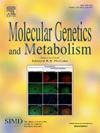Beyond sialylation: Exploring the multifaceted role of GNE in GNE myopathy
IF 3.7
2区 生物学
Q2 ENDOCRINOLOGY & METABOLISM
引用次数: 0
Abstract
Defects in sialic acid metabolism disrupt the sialylation of glycoproteins and glycolipids, contributing to a spectrum of diseases, including GNE myopathy (GNEM). This rare disorder is caused by mutations in the GNE gene that encodes for a bifunctional enzyme required for sialic acid biosynthesis, resulting in progressive muscle atrophy and weakness. There is no approved treatment for GNEM, and the number of affected individuals is underestimated. Although hyposialylation is considered the hallmark of GNEM, evidence showed lack of consistent correlation with GNEM severity and unveiled additional roles of GNE that contribute to the onset and/or progression of GNEM. Recent findings indicate that these mechanisms extend beyond glycosylation, encompassing cytoskeletal dynamics, oxidative stress, and muscle regeneration pathways. Understanding how GNE mutations result in a cascade of cellular and molecular dysregulations is crucial for developing targeted therapies aimed at improving the quality of life of patients.
This review comprehensively examines GNEM's pathophysiology, clinical presentation, and therapeutic strategies, highlighting key findings on non-canonical GNE functions that account to GNEM clinical outcomes and emerging therapeutic targets. We propose future research directions to explore alternative target pathways that can ultimately support clinical development.
求助全文
约1分钟内获得全文
求助全文
来源期刊

Molecular genetics and metabolism
生物-生化与分子生物学
CiteScore
5.90
自引率
7.90%
发文量
621
审稿时长
34 days
期刊介绍:
Molecular Genetics and Metabolism contributes to the understanding of the metabolic and molecular basis of disease. This peer reviewed journal publishes articles describing investigations that use the tools of biochemical genetics and molecular genetics for studies of normal and disease states in humans and animal models.
 求助内容:
求助内容: 应助结果提醒方式:
应助结果提醒方式:


